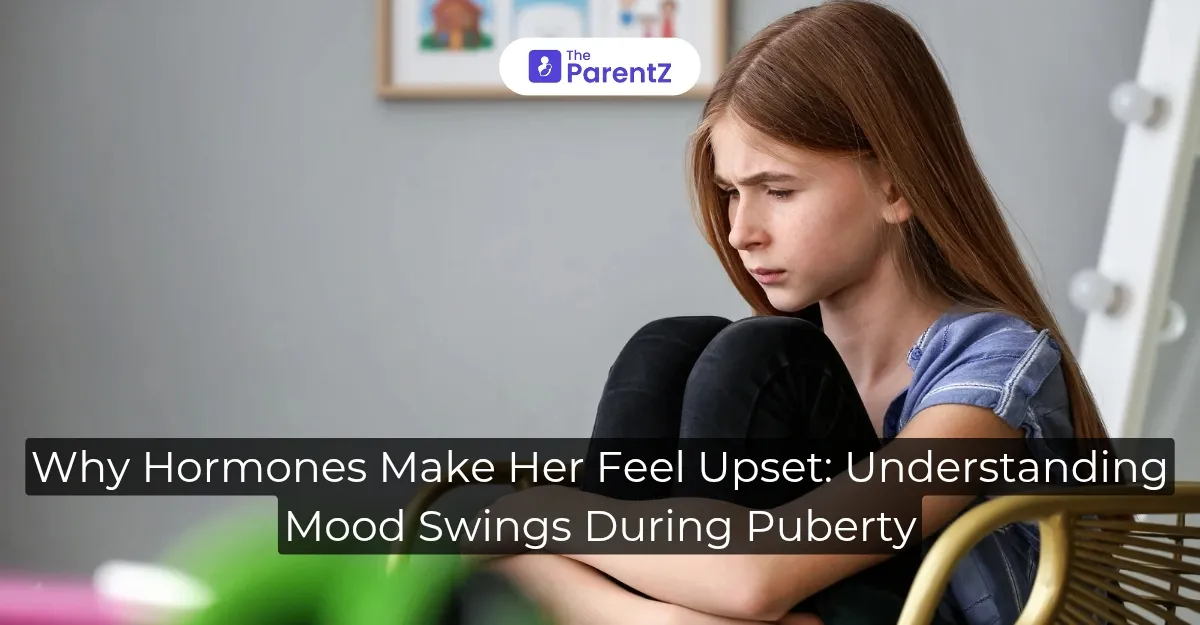The Emotional Rollercoaster of Puberty
One moment you’re laughing at a silly joke, and the next, you’re on the verge of tears, welcome to puberty! If you’re wondering, “Why do I feel so emotional all the time?”, blame your hormones. Your body is undergoing major changes, and your emotions are riding the waves of estrogen, progesterone, and serotonin fluctuations. But don’t worry, this is completely normal!
What’s Happening in Your Body?
Puberty is triggered by a surge of hormones, which are like tiny chemical messengers controlling everything from your emotions to your energy levels. Here’s what’s going on behind the scenes:
1. Estrogen: The Emotional Shifter
• Levels rise and fall throughout the menstrual cycle.
• High estrogen can make you feel confident and energetic.
• Low estrogen (before your period) can lead to irritability, sadness, and low energy.
2. Progesterone: The Calm Before the Storm
• Increases in the second half of your cycle.
• Has a calming effect but also contributes to bloating and sluggishness.
• When it drops before your period, mood swings and anxiety can kick in.
3. Serotonin: The Happy Hormone
• Estrogen boosts serotonin, making you feel good.
• When estrogen dips before your period, serotonin levels drop too, leading to mood swings, irritability, and even depressive feelings.
4. Cortisol: The Stress Hormone
• Puberty can make you more sensitive to stress.
• High cortisol levels can lead to anxiety, difficulty sleeping, and heightened emotional reactions.
The Ups and Downs: Why You Feel All Over the Place
Hormonal changes aren’t just about emotions—they affect your entire body. Here’s what you might experience during puberty and your menstrual cycle:
Before Your Period (PMS Phase)
• Mood swings (crying one moment, laughing the next)
• Feeling extra sensitive or irritable
• Anxiety or sadness
• Increased cravings for sweet or salty foods
• Bloating and headaches
During Your Period
• Cramps ranging from mild to severe
• Low energy and fatigue
• Back pain or leg pain
• Digestive issues (bloating, constipation, or diarrhea)
• Increased need for comfort foods
After Your Period (Follicular Phase)
• Feeling more energetic and happy
• Improved focus and confidence
• Better sleep and reduced cravings
How to Manage Mood Swings and Pain?
1. Home Remedies for Pain and Cramps
• Apply heat: A heating pad or warm water bottle can help relax your muscles and ease cramps.
• Stay hydrated: Drink lots of water to reduce bloating and headaches.
• Exercise lightly: Walking or yoga can release endorphins, which help improve mood.
• Herbal teas: Chamomile or ginger tea can soothe cramps and calm your mind.
• Magnesium-rich foods: Bananas, nuts, and dark chocolate can help with bloating and mood swings.
2. Managing Mood Swings
• Create a mood scrapbook: Instead of just relying on digital journals, make a scrapbook. Each day, write how you feel and add pictures or sticky notes. Over time, you’ll notice a pattern and understand your emotions better.
• Distraction therapy: When you feel down, engage in fun activities like painting, doodling, or scrolling through Pinterest for inspiration.
• Listen to music: Your favorite songs can instantly lift your mood.
• Deep breathing exercises: Helps reduce stress and anxiety.
• Talk to someone: A friend, parent, or journal—expressing your feelings can help.
Dealing with Food Cravings
Craving chocolate or chips before your period? That’s your body asking for serotonin and energy! Instead of resisting cravings completely, try healthier swaps:
• Instead of milk chocolate → Dark chocolate (more magnesium, less sugar)
• Instead of chips → Popcorn with a little sea salt
• Instead of soda → Flavored water or herbal tea
• Instead of ice cream → Yogurt with fruit
Eating protein-rich foods like nuts, cheese, or eggs can also help keep cravings in check.
When to See a Doctor?
Mood swings and cramps are normal, but if they start interfering with your daily life, it might be time to seek medical advice. See a doctor if you experience:
• Severe cramps that don’t improve with painkillers or heat therapy
• Extreme mood swings leading to depression or anxiety
• Heavy bleeding that lasts more than 7 days
• Irregular periods or sudden changes in your cycle
• Debilitating fatigue or dizziness
You don’t have to suffer in silence, your doctor can help you find solutions!
The Tough Talk: Accepting That Periods Are a Part of Life
Yes, periods and mood swings can be tough, but here’s the thing—you’ll learn to manage them over time. Tracking your emotions, understanding your cycle, and having self-care rituals can make a huge difference.
Here’s a Fun Challenge!
For the next 3 months, do the following
1. Track your moods: Write down how you feel each day in your scrapbook.
2. Take a picture of yourself: Capture your highs and lows and add them to your scrapbook.
3. Use sticky notes: Write “Today I feel…” and put it somewhere visible.
4. Notice patterns: After a few months, you’ll understand your cycle better and feel more in control.
Remember, this is just a phase, and every girl goes through it. You’re not alone!
Final Thoughts
Puberty and periods might feel overwhelming, but once you understand what’s happening in your body, it gets easier. Your hormones may be in control of your emotions, but YOU are in control of how you handle them.
So, take a deep breath, grab your scrapbook, and start tracking your journey because the more you understand yourself, the stronger and more confident you’ll feel.








